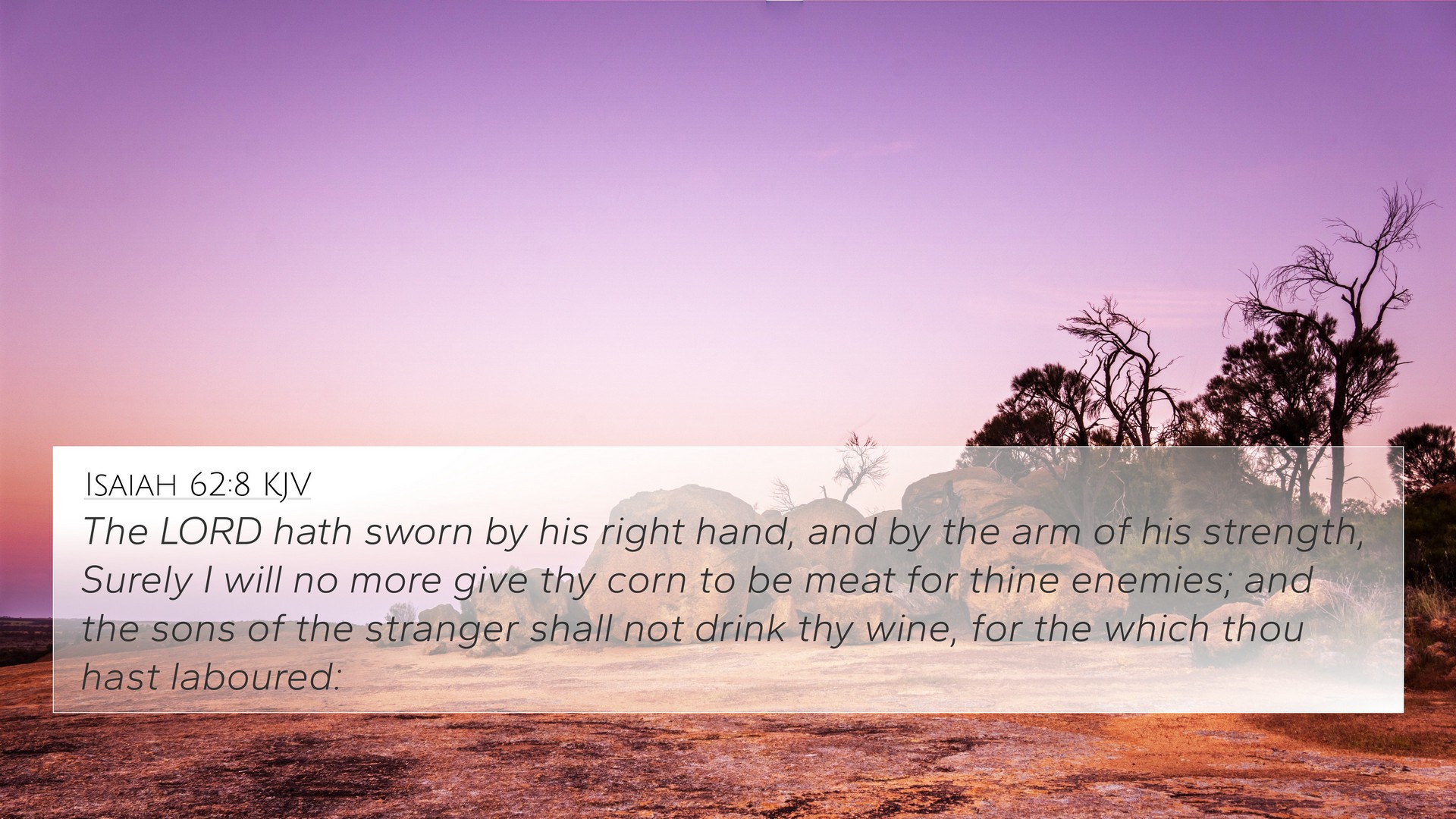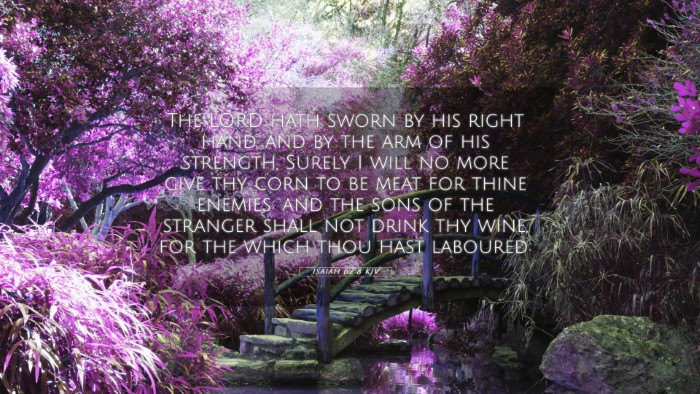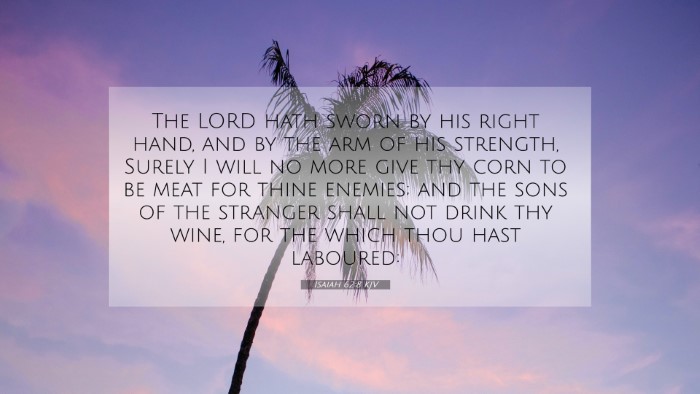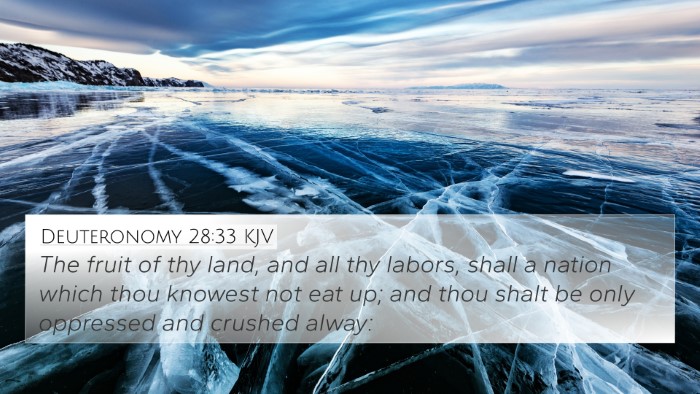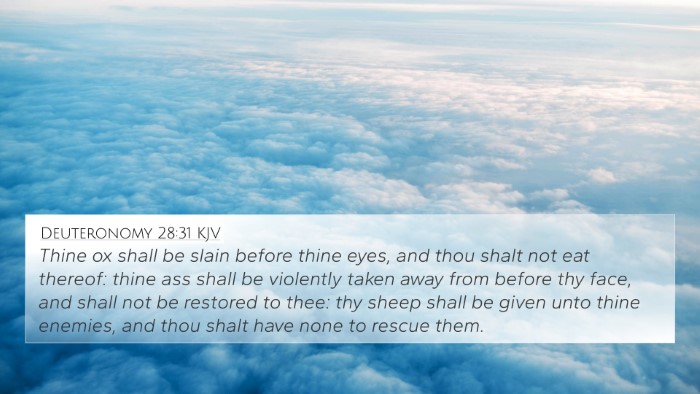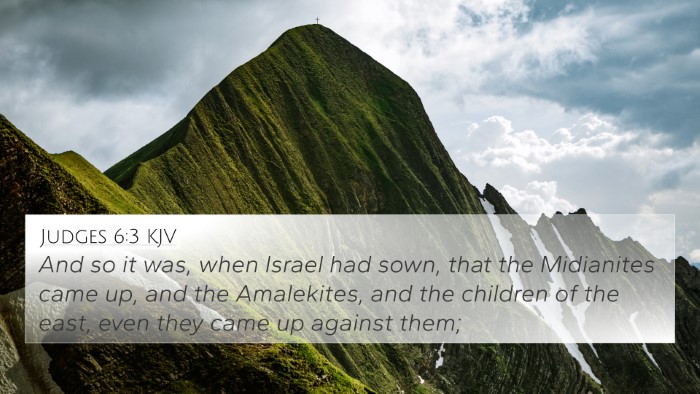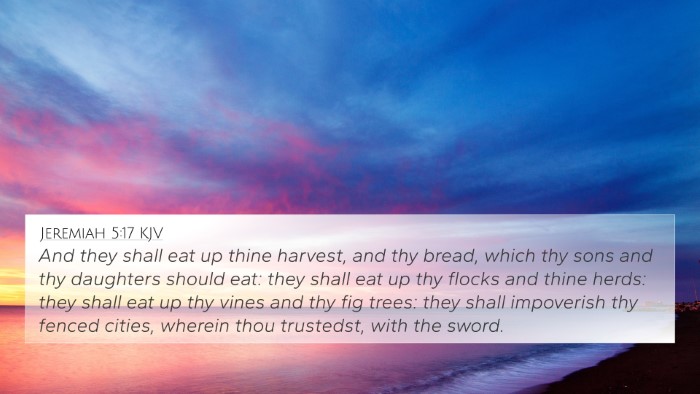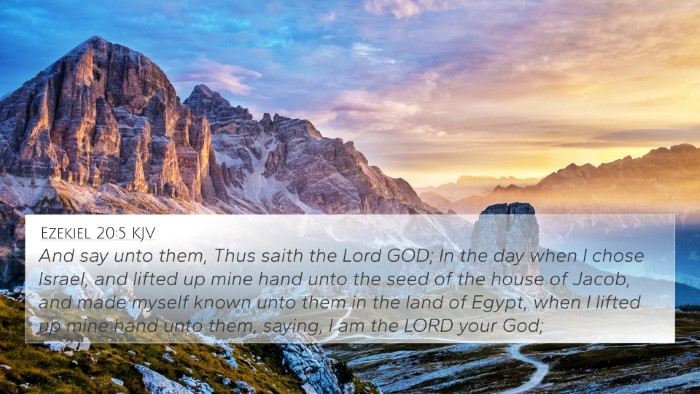Understanding Isaiah 62:8
Isaiah 62:8 reads: "The Lord has sworn by His right hand and by the arm of His strength: 'Surely I will no longer give your grain as food for your enemies; and the sons of the foreigner shall not drink your new wine for which you have labored.'" This verse emphasizes God's commitment to protect and restore His people, reaffirming His covenant promises.
Meaning and Interpretation
The insights provided by various public domain commentaries highlight several key themes within this verse:
- God's Vow: The use of "sworn" signifies a solemn promise. Matthew Henry notes that God's oaths are a declaration of His determination to fulfill His words. This evokes a deep sense of assurance for believers.
- Divine Protection: God’s right hand and strong arm symbolize His power and protection over Israel. Albert Barnes explains that this imagery denotes God’s active intervention on behalf of His people.
- Restoration of Abundance: The promise that foreign nations will not consume the fruits of Israel’s labor indicates a future reversal of fortunes. Adam Clarke offers insights aligned with this view, emphasizing that God will reclaim and bless His fields.
- A Call to Gratitude: The blessings foretold in this passage encourage believers to acknowledge God's profound provision. Such acknowledgment fosters a grateful heart, which is essential in a covenant relationship with God.
- Promise of Deliverance: The assurance against exploitation by foreign nations speaks to God’s desire for justice and deliverance. This promises that God's people will enjoy the fruits of their labor in peace.
Cross-Referencing Biblical Texts
In exploring the connections between this verse and other parts of the Bible, several themes emerge:
- Exodus 23:25-26: God's promise to bless His people and none will suffer miscarriage or be barren.
- Psalms 37:25: David reflects on God’s provision for His people, emphasizing their security when they seek Him.
- Jeremiah 31:10: This verse parallels Isaiah’s promise of protection and restoration, affirming the hope of return from exile.
- Joel 2:25-26: The promise of restoration, where God will return what has been taken away, aligns with Isaiah's prophetic assurance.
- Luke 1:54-55: Mary's song reflects God’s faithfulness to help His servant Israel, indicating that God continues His work of redemption.
- Romans 8:32: Paul's declaration regarding God's provision highlights God’s unwavering commitment to bless and care for His people.
- Revelation 21:4: The culmination of God’s promises is seen in the eternal state, where God wipes away every tear, restoring peace and happiness forever.
Thematic Connections
This verse deals with significant themes in the biblical narrative:
1. Divine Justice
God's promise to withhold blessings from oppressors highlights His nature as a just deity committed to protecting His people.
2. Covenant Faithfulness
This verse underscores God's faithfulness to His covenant. Each promise made by God communicates His unfailing loyalty to His people.
3. Restoration and Hope
The promise of abundance and protection evokes hope for restoration, revealing God’s intention to redeem and renew.
Practical Application
Believers can take heart in the promises of God, reflecting on how they might cultivate a spirit of gratitude in challenging times. Cross-referencing this verse with others fosters a deeper understanding of God’s commitment and a more robust faith.
Tools for Cross-Referencing
Utilizing a Bible concordance or cross-reference guide can unlock deeper insights into scriptural themes. This approach allows believers to:
- Identify connections between Old and New Testament scriptures
- Develop a detailed cross-reference between Gospels
- Engage in cross-referencing Psalms with New Testament teachings
- Explore how themes in Paul’s epistles relate to prophetic teachings
Conclusion
Isaiah 62:8 serves as a beacon of hope and assurance. By exploring various commentaries and cross-referencing other biblical texts, believers can appreciate the depth and richness of God’s promises, reinforcing their faith through the recognition of His unchanging nature.
